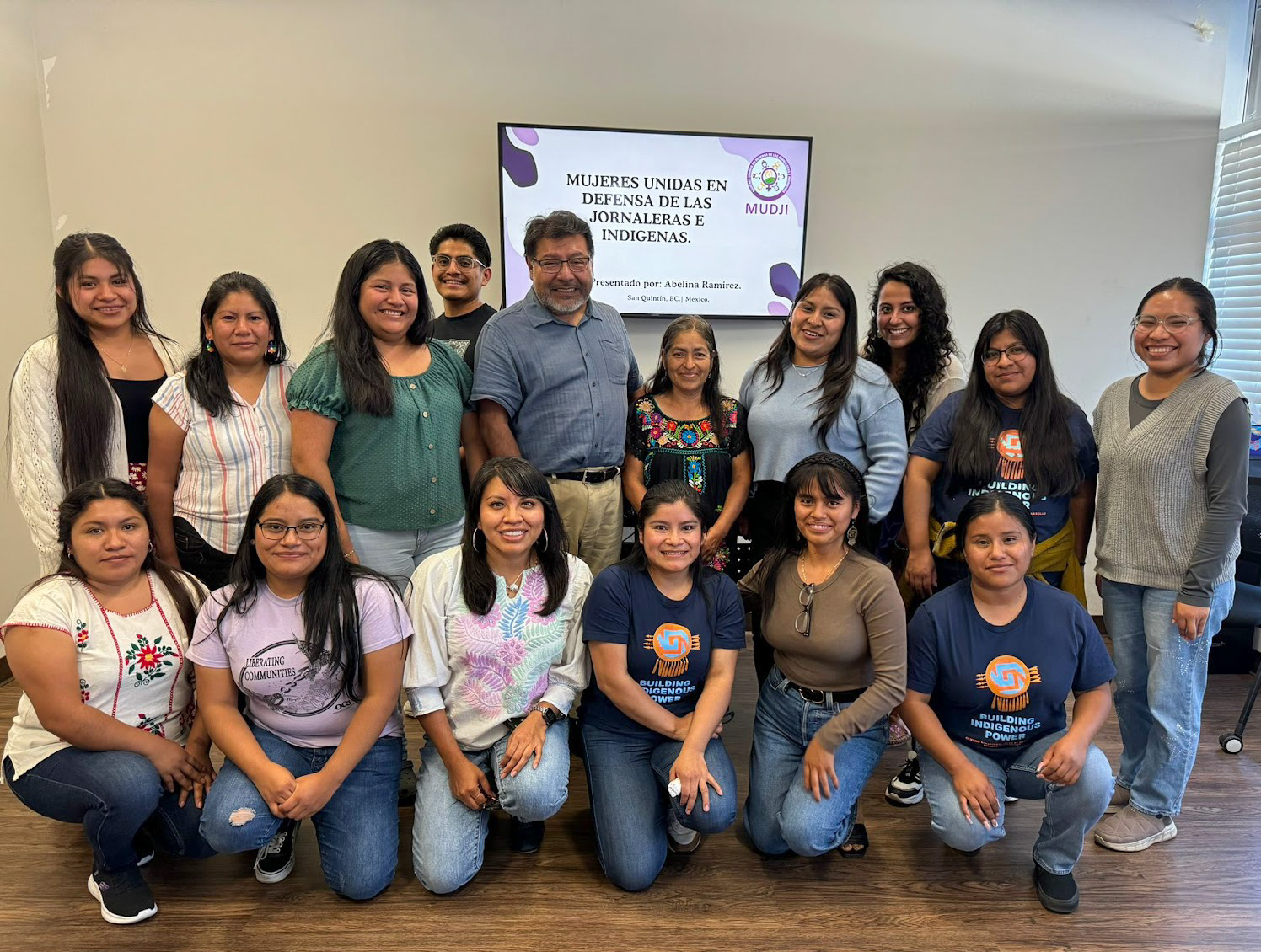
By: Dulce María López and Sara Roschdi
From Sept. 3 to 6, 2024, the UCLA Labor Center’s Global Solidarity program organized a tour that brought together Indigenous farmworker organizations from San Quintín, Mexico, and Central California. Sponsored by the Latina Futures 2050 Lab, the UCLA Chicano Studies Research Center and the UCLA Institute for Research on Labor and Employment (IRLE), this initiative aimed to bridge the gap between farmworker communities across borders and foster solidarity through political education and community dialogues.
At the heart of the tour was Abelina Ramirez-Ruiz, a prominent campesino leader who serves as the general secretary of the Sindicato Independiente Nacional Democrático de Jornaleros Agrícolas de México (SINDJA) and is the founder of Mujeres Unidas en Defensa de las Jornaleras e Indígenas (MUJDI). Abelina’s tour comprised visits to two leading Indigenous farmworker organizations in Central California: the Mixteco/Indígena Community Organizing Project (MICOP) and the Centro Binacional para el Desarrollo Indígena Oaxaqueño (CBDIO). These two organizations have long-standing histories of supporting San Quintín farmworkers, particularly during their historic 2015 strike.

During the tour, Abelina detailed how workers in San Quintín walked off the fields, halted production transportation and demanded better working conditions. This 12-week strike cost farmers tens of millions of dollars, secured negotiations with growers and led to the formation of the independent farmworker union SINDJA, marking a pivotal moment in Mexican farmworker history. Though this strike resulted in significant wage increases and benefits, Abelina noted that these gains have been eroded by inflation, which continued to leave farmworkers in precarious conditions.
Abelina spoke alongside other Indigenous farmworkers from Zapotec, Mixteco, and Triqui communities, many of whom had worked in San Quintín on their migration journey north to the United States. These community dialogues highlighted ongoing challenges, including the exploitation of H-2A visa workers in California. These immigrant workers are often housed under poor conditions, facing overcrowding, inadequate amenities and minimal rights despite their work visa status and crucial role in the agriculture industry.

The discussion also addressed the continued recruitment of Indigenous workers from Southern Mexico to the fields in San Quintín, where similar promises of better wages and housing are frequently unmet. Abelina described these conditions as akin to “modern-day slavery,” emphasizing the severe disparities and exploitation faced by these Indigenous migrant workers in San Quintín.
Amalia Bernardo, the Farm Worker Justice manager of CBDIO, shed light on the crucial role agricultural workers play in feeding not just California, but the entire world. She pointed out a troubling reality: these essential workers are often treated as disposable by farmers, who threaten to hire new employees if current workers refuse to accept extremely low wages.

As Indigenous farmworkers in Mexico and the United States work in fields that supply the U.S. market—often owned by the same company—both face discrimination due to their Indigenous heritage, experiencing conditions of precarity.
“We want workers to know that, regardless of their language or immigration status, they have rights,” Bernardo said. “Abelina’s presentation shows that with collective action, victory is possible.”
The solidarity built between Indigenous farmworker communities in San Quintín and Central California by sharing their stories and struggles strengthened their collective resolve to combat the exploitation of their communities, advocate for better labor conditions across borders and foster the ongoing fight for farmworker rights and dignity.




